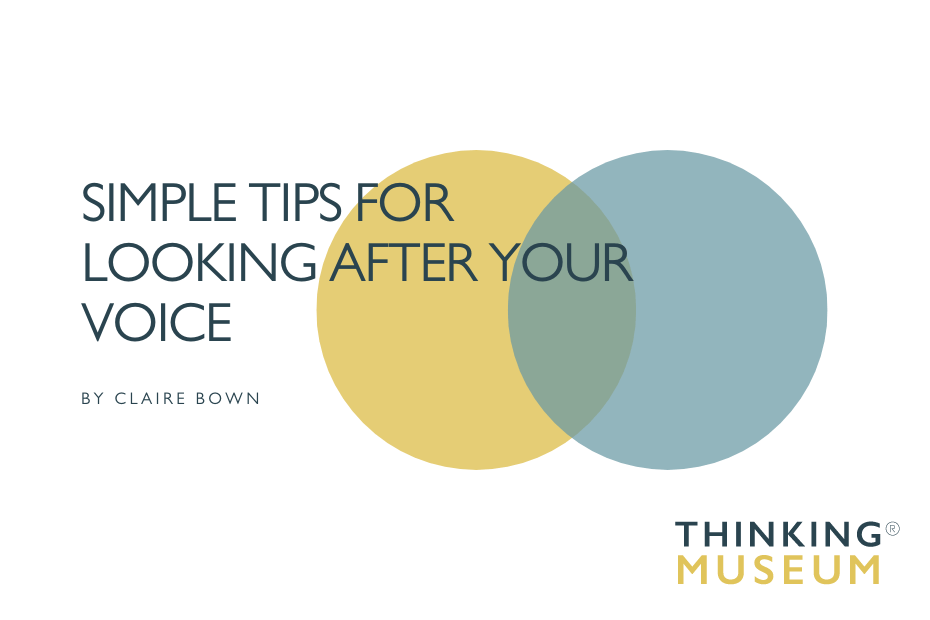On a guided museum experience your voice is your instrument, your tool. Like an actor who can produce many different ‘voices’, we can also learn ways to produce sound to increase emphasis, enhance storytelling and add emotional effect.
Without your voice, you cannot work, so it makes sense to use your voice wisely (without the aid of whisper sets etc).
However, we all know that there are times when we are forced to strain our voices for a large group, or lead too many tours in a row or work in very noisy, echoey environments. So, how can we protect our voices?
Warm-Up
Find a quiet space and do some warming-up exercises before you start for the day (start with hissing sounds, then ‘Mm-mmm. Mmm-hmm’ up and down your vocal range, make a siren sound with ‘Oooo’ and ‘Eeeee’ and say a few sentences out loud)
Exercise
Regularly practice tongue-twisters to help strengthen muscle for good articulation. Speech that is well-articulated is easy to follow and understand.
Rest
The general advice for looking after your voice is to avoid overuse – although this is difficult when your voice is your tool for your work! Do try to rest your voice where possible – make sure you have some quiet periods in your day.
Breathe
Practice good breathing techniques when talking. When talking, support your voice with deep breaths from the chest.
Hydrate
Take regular sips of water throughout the day – 6 to 8 glasses is recommended. Avoid too much caffeine – it can cause the body to lose water and make the vocal folds and larynx dry. It can also cause you to speak too fast!
No extremes
Avoid using the extremes of your voice such as shouting or whispering. Talking too loudly or too softly can put a strain on your voice.
Don’t Do All the Talking!
Your tours should be participant-centred and dialogue-rich. Avoid monologuing and save your voice for asking questions instead!
Looking after your voice is so important – I have had periods of losing or straining my voice through overuse or difficult speaking conditions. We can all learn to produce the best sound with the least vocal strain, we just need to be more mindful about how we use our voice on a daily basis.
Sign up for my Curated newsletter
Every other Friday I share a small dose of curated inspiration. It might be things I’ve read, things I’ve listened to or things I’ve watched.
Hear about my latest podcast episode and read useful tips, recommendations and things that I love. Join via the button below.
